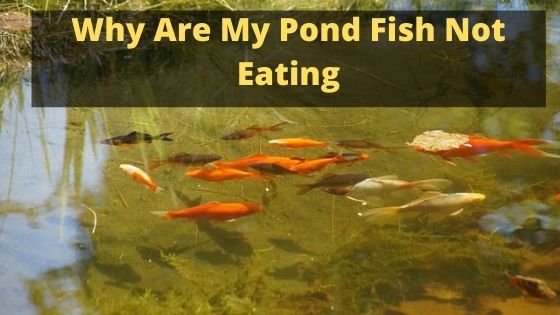Pond fish are a great alternative to having your own fish tank in your house. While most people only think of goldfish when it comes to pond fish, there are tons of other options including catfish, crappie, bass, and bluegill. If you are new to having pond fish, there are probably a lot of things you are unaware of, such as hibernation and pond fish appetite.
Why are my pond fish not eating?
One of the main reasons that your pond fish are not eating is because of the cold. In fact, almost all types of pond fish hibernate during the winter. Pond fish usually begin to hibernate once the water temperature reaches 38 degrees Fahrenheit or lower. In fact, feeding fish that are trying to hibernate can actually damage their digestive system, so it is best not to feed them at all during the winter. However, if your fish are constantly swimming near the top of the pond, it means they are likely looking for food, so you can give them a small amount of food until they return back to the bottom of the pond.
Another reason your fish might not be eating is because you are not feeding the right food for the particular season. In the fall and spring, you should feed your pond fish wheat germ based food. In the summer, you can widen the range of food and you can give them any kind of fish food.
Poor water quality could be another reason that your pond fish are not eating. It is possible that your pond has high levels of ammonia, nitrogen, or other harmful nutrients. This is usually the case if your water has become very cloudy and murky. If you suspect this is the case, you should run a water quality test. This will check for ammonia and nitrogen levels while also checking the pH level.
There is also a chance that your pond fish do not like the food that you are feeding them. You should try switching up the different types of food and see if they prefer one more than the others. In general, pond fish like food that floats at the top of the pond.
Finally, your pond fish may not be eating because they have a sufficient amount of natural food in the pond. It is important to realize that pond fish are scavengers and commonly find food of their own. A pond has thousands of organisms such as algae and insects that pond fish can eat. If your pond fish are not eating, but still appear to be healthy and the water chemistry is good, they are probably just deciding to eat what the pond naturally has to offer. Pond fish typically feed on organisms that are at the bottom of the pond, which is why it might seem like they are not eating.
